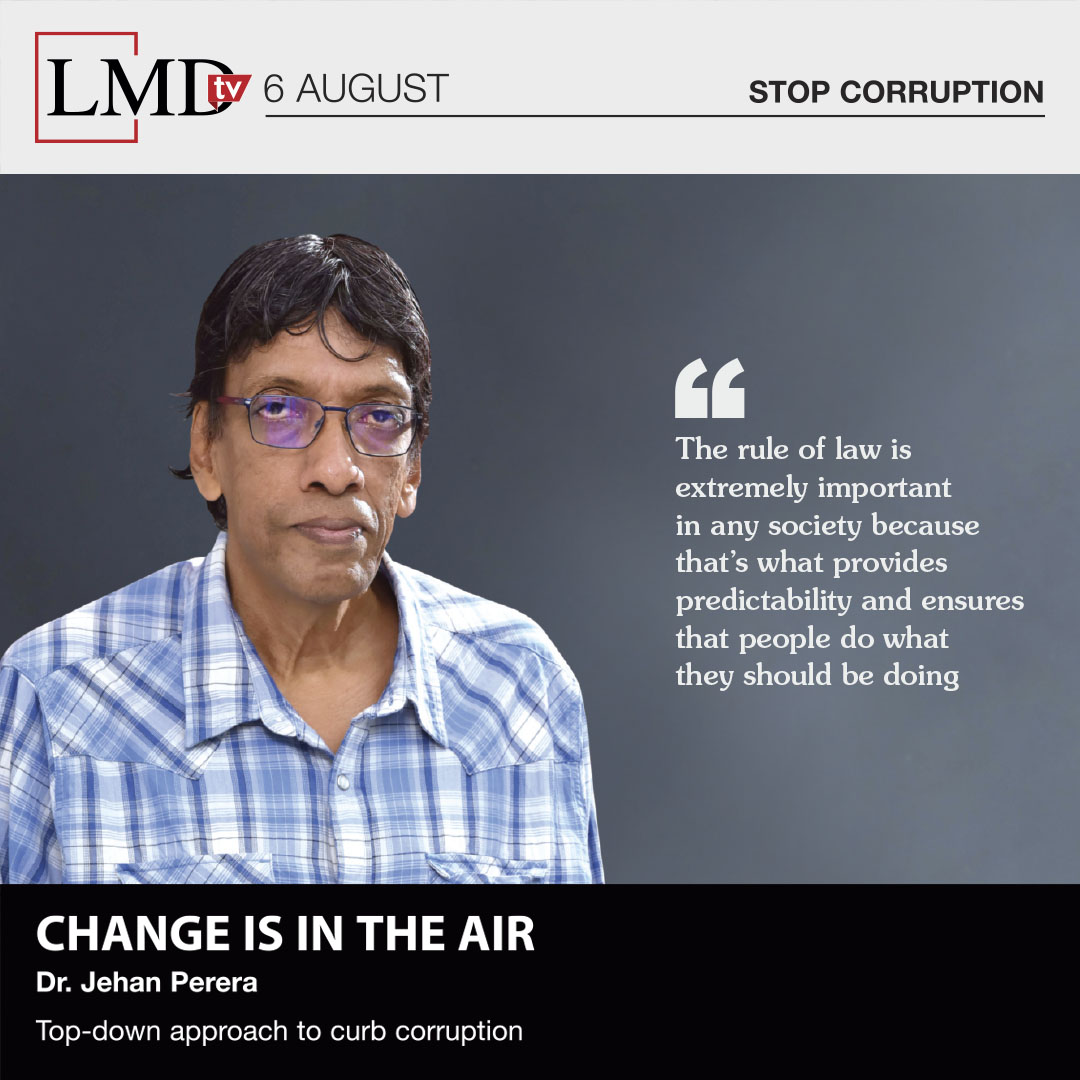LMDtv 5

The government’s strong anticorruption stance is seeing a positive shift in public perceptions, in terms of Sri Lanka’s push for good governance.
“I think the most special feature of this government is that it’s following the rule of law and most of the constitution,” the Executive Director of the National Peace Council of Sri Lanka (NPC) Dr. Jehan Perera opined, during a recent LMDtv interview.
He continued: “The leaders of previous governments broke the law with impunity and there was very little accountability. However, we see a change in this government as it is operating within the framework of the law and being cautious. It isn’t trying to change legal provisions; instead, it’s implementing the law as it is, rather than trying to engage in constitutional reform.”
“The rule of law is extremely important in any society because that’s what provides predictability and ensures that people do what they should be doing,” he said, adding that the challenge lies in spreading this change in political culture and getting it “across the board.”
He stated: “Now the question is how long the government’s momentum can be sustained in stopping corruption because we all know that power corrupts. It requires very special people to sustain a change and not get corrupted as well. The public is hopeful that the present leaders are incorruptible.”
Perera also noted that “the checks and balances on executive power are enforced through parliamentary committees and parliament itself.”
He explained: “For instance, the Committee on Public Enterprises (COPE) and Committee on Public Accounts are very important institutions, and must be allowed to function without government interference.”
“Similarly, the judiciary, Attorney General’s Department, Human Rights Commission and Police Commission should also function independently. And of course, civil society needs to play its part. At the moment, there doesn’t seem to be any tension or stress placed on civil society by the government,” Perera maintained.
And he emphasised that the public must push the government like they did during the aragalaya. To this end,
Perera noted: “The agenda of the aragalaya was a people’s agenda, which demanded economic growth, better living standards, a country free of corruption, and for everyone to be treated equally and equitably.
“Those are great aims but they need to be promoted and fostered so they can be transformed into institutional forms. The sentiments of the people can only take a concrete form if the government passes laws and creates the legal frameworks necessary for their delivery,” he added.
He said that there will always be resistance to change and highlighted the country’s public sector where corruption has reigned for decades: “The salaries of state employees are low; and over time, they have found ways of earning more through corrupt practices.”
Perera stressed that “while state sector corruption needs to end, government servants also need to live; and therefore, it’s difficult to stop the graft.”
“State-owned enterprises (SOEs) in this country have been a big drain on the national coffers – and when they run at a loss, money that should go towards reducing poverty goes to sustain those loss-making institutions,” he charged.
However, he noted: “In principle, I am in favour of them [SOEs] in areas where they perform services such as transport, healthcare and education. These are public services and the state should be involved in their provision because profit should not be the dominant motive.”
“The question is how to ensure that SOEs perform properly – and for that to happen, appointments to top positions must be on the basis of merit while taking the integrity of the individuals concerned into account,” he recommended.
“Perera concluded: “SOEs can be run profitably, depending on who leads them – because a top-down approach is what’s needed and leadership matters.”

